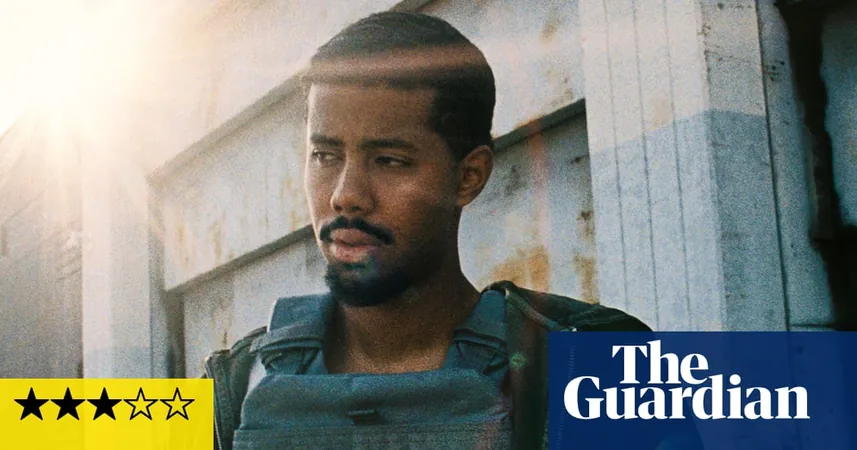
Mustafa Ahmed's Debut Album "Dunya": A Beautifully Subtle Exploration of Life and Identity
2024-09-26
In the realm of contemporary music, few emerging artists have accomplished as much at such a young age as 28-year-old Mustafa Ahmed. With a remarkable journey that includes accolades as a performance poet, founding member of the Canadian hip-hop collective Halal Gang, and even an acclaimed director whose short film “Remember Me, Toronto” featured prominent figures like Drake, Mustafa is now stepping into the limelight with his debut album, "Dunya." This project builds upon his previous work, notably his 2021 EP, "When Smoke Rises," showcasing his evolution into the realm of acoustic singer-songwriter.
"Dunya" exhibits a folk-like sensibility, but that classification might only scratch the surface of Mustafa’s unique sound. The album feels like a blend between the laid-back grooves of Jack Johnson and the emotional rawness reminiscent of James Blake. Mustafa's vocals often evoke a sentimental spirit akin to that of his Canadian counterpart, Drake, as illustrated in lines like, "Both our eyes are red, but you’re high and I’m crying." In certain tracks, such as "Beauty, End," listeners can sense a slight nod to Ed Sheeran, particularly in the way his rhythms and cadences flirt with the elements of rap, albeit delivered with a soulful and contemplative twist.
What truly enhances "Dunya" is its impressive roster of collaborators. With contributions from acclaimed producers like Aaron Dessner of The National and experimental electronic artist Nicolas Jaar, the album is layered with rich textures. Mustafas’ sound is bolstered by atmospheric synthesizers, delicate piano melodies, and samples that infuse the music with depth—imagine a soundtrack where the warmth of bonfire smoke meets the vibrancy of a bustling city.
Mustafa’s lyrics reflect his background and experiences; as a former performance poet, he resonates through hazy memories and nuanced observations about life in the urban landscape of Toronto. Tracks such as "Gaza Is Calling" delve into heavier themes, portraying a poignant connection with his Palestinian friend facing the risks of returning home. However, the vitality of the album sometimes risks being overshadowed by its own subtlety, creating a sound that, while captivating, can fade into the background.
The standout moment on the album, "Gaza Is Calling," defies the album’s general pace, transitioning from ethereal sounds to a pulsating drum pattern that showcases the intensity of life’s unexpected turns. Such sonic shifts highlight why "Dunya" might benefit from a few more memorable crescendos to elevate its emotional landscape.
Despite its gentle presentation, "Dunya" is a significant entry into the music scene, especially in a genre often dominated by voices that do not share Mustafa’s Black Muslim perspective. With its unassuming yet impactful themes of faith, identity, and resilience, “Dunya” invites listeners to dive deeper into the story of an artist determined to share his world. As this debut resonates, it leaves room for hope that more artists like Mustafa will continue to emerge, making their voices heard in the ever-evolving narrative of music today.
In an era when music often speaks louder than words, "Dunya" is a quiet revolution that beautifully juxtaposes sorrow with wisdom, drawing us into the intricate tapestry of life experiences. Want to know how this album could change the landscape of acoustic pop? Stay tuned, as the potential for more breakthrough moments in Mustafa’s journey seems limitless!









 Brasil (PT)
Brasil (PT)
 Canada (EN)
Canada (EN)
 Chile (ES)
Chile (ES)
 España (ES)
España (ES)
 France (FR)
France (FR)
 Hong Kong (EN)
Hong Kong (EN)
 Italia (IT)
Italia (IT)
 日本 (JA)
日本 (JA)
 Magyarország (HU)
Magyarország (HU)
 Norge (NO)
Norge (NO)
 Polska (PL)
Polska (PL)
 Schweiz (DE)
Schweiz (DE)
 Singapore (EN)
Singapore (EN)
 Sverige (SV)
Sverige (SV)
 Suomi (FI)
Suomi (FI)
 Türkiye (TR)
Türkiye (TR)